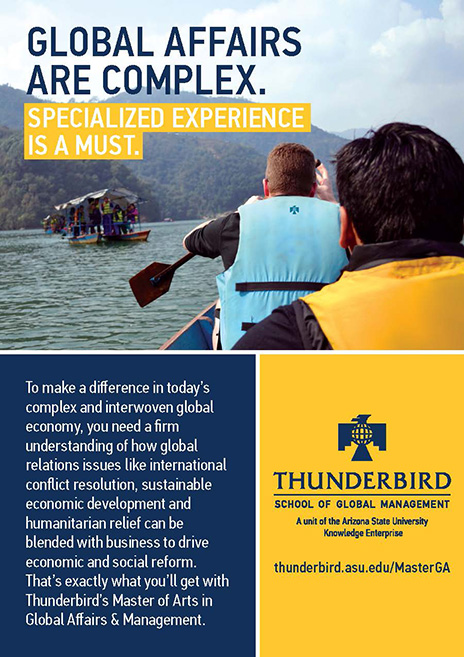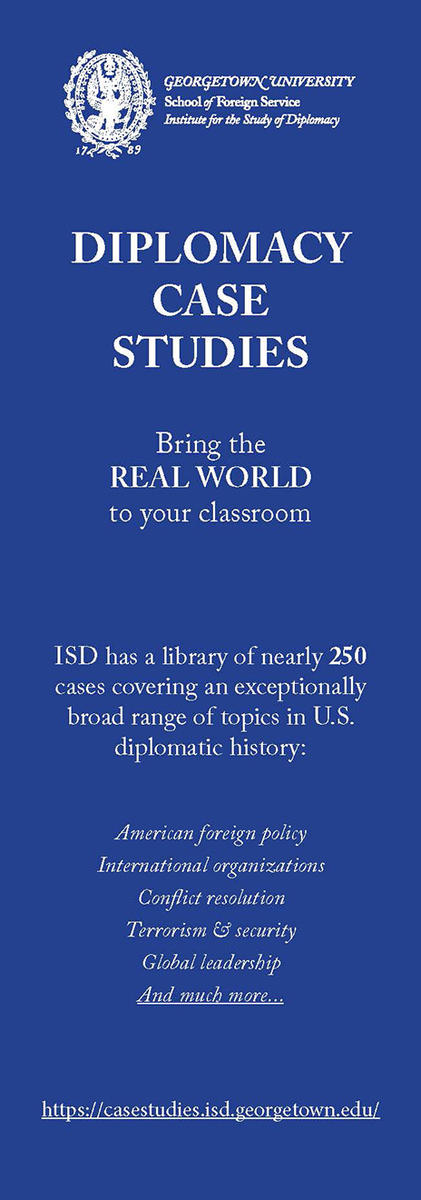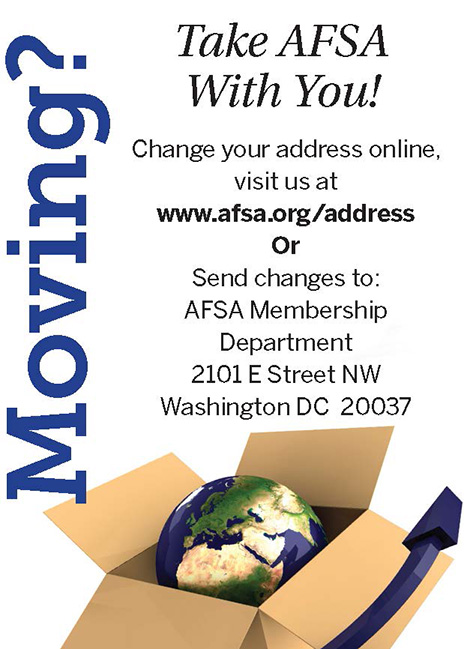Impact of the Family Member Hiring Freeze: Feedback from the Field
Letters-Plus
The July-August feature, “Out in the Cold,” amplified discussion of the current family member hiring freeze. To better understand its on-the-ground consequences, the Journal invited readers to share their own stories and experiences. Given that some responses could have direct consequences for an employee or family member, we agreed to run some comments from people who preferred to remain anonymous. Each respondent is known to the Journal.
The responses were varied and compelling, but there were far too many to publish them all in the print version of the Journal.
Additional responses that are not in the hard-copy edition can be found here.
—The Editors
A manager’s perspective
I’d like to offer the perspective of a manager. Our consular section is funded for four EFM positions: Due to the hiring freeze, one remains empty and unfillable after a recent transfer, and the other is filled but the EFM is awaiting a security clearance. She’s been told that even after her clearance is granted, she will not be able to accept the position.
Our two remaining EFMs divide their time between fingerprinting visa applicants, observing DNA collection and performing notary services, leaving them little time to do anything else in our busy section. We now send officers on all prison visits and welfare/whereabouts checks, causing visa and routine service wait times in American Citizen Services to rise dramatically.
We have open positions that need to be filled by cleared U.S. citizens; we have U.S. citizens eager to do the work; Consular Affairs has an operational budget to support these positions; it’s absurd not to allow us to hire them.
Not for attribution
Small posts lose highly skilled workers
Obviously, the hiring freeze has a negative effect on families. However, I would say that posts are negatively impacted even more—particularly smaller posts.
EFMs work hard to make themselves adaptable and may have experience in many different disciplines. Aside from the education and experience they bring in the door with them, many have taken FSI courses to learn a specific State Department skill that will best serve their gaining post. Many have attended and passed multiple FSI courses—the same courses direct hires attend—and have worked in those disciplines for years.
That training and experience does not disappear when they move on to their next post. It is not uncommon for an EFM to be the most experienced person at post in a particular skill, either because there is no direct-hire position allocated to that post or because the position is allocated to an entry-level officer.
In every position I have ever held as an EFM (different at every post), I have been called on to apply knowledge gained from my previous EFM employment. I am certain that I’m not the only one who has experienced this. Good post management is well aware of the resources their EFMs bring to the table.
Richard Arnold
Hermosillo, Mexico
Failing to serve Americans in Europe
Simply put, for lack of a consular associate, the quality of consular services for U.S. citizens traveling and living in this European country is compromised. The hiring freeze is preventing a fully trained, qualified and cleared EFM from starting work.
The resulting American Citizen Services staffing shortage means longer waits for passports, birth and death reports and notary services. It means fewer visits to citizens in hospitals and prisons, slower repatriations and less attentive assistance to crime victims.
With Western Europe facing terrorist threats, this is no time to cheat our taxpayers out of the service they pay for.
Not for attribution
I’m not good enough anymore?
As an Army reserve officer (veteran of the Iraq War) and military spouse with an undergraduate degree in economics and an MBA, I find it incredibly difficult to be in the position that I am due to the EFM hiring freeze.
I have worked in the Political and Economic sections at U.S. Embassy Djibouti for more than 15 months; my husband recently received his new assignment to Addis Ababa. The hiring freeze means there will be no positions for me in Addis Ababa, so I resigned from my EFM position and accepted a contractor position supporting Camp Lemonnier, Djibouti. This will require that my family be geographically separated; I will remain in Djibouti, potentially without diplomatic status, and I will incur additional expenses for separate housing and utilities.
During Secretary of Defense James Mattis’ visit to Djibouti, I was the control officer responsible for coordinating and planning with the Office of the Secretary of Defense staff, embassy staff and CLDJ/ CJTF-HOA military staff members. I was also the control officer for the East Africa Security Synchronization Conference, where more than 26 VIPs (ambassadors and military general officers) came together to discuss security issues in the region.
I have written numerous cables and reports for Washington that are directly tied to foreign policies concerning the mass migration of refugees into the region and human trafficking, as well as other annual reports mandated by Congress.
I find it heartbreaking that I was taken advantage of to accomplish the work of political and economic officers, yet suddenly I’m no longer good enough.
LaTonya S. Hama
Djibouti, Djibouti
EFM Hiring Freeze
Eligible family member (EFM) employment is a top priority for AFSA. The issue has been raised repeatedly in recent discussions AFSA leadership has had with members. Members told us that critical post operations were threatened by the State Department’s decision not to backfill positions vacated as a result of the normal Foreign Service rotation cycle. As EFMs are often by far the most cost-effective way to get a job done, the decision baffled many members.
AFSA also knows that the loss of EFM employment is a real hardship for families. In our Structured Conversations, members tell us they love their jobs but worry about the impact of their highly mobile service on spouses, many highly educated and with career aspirations of their own.
AFSA will continue to press for a resumption of EFM hiring. Please join us in making the points that EFM hiring is cost-effective, contributes mightily to critical post operations, and is good for families.
—AFSA
Key positions vacant
I have a strong résumé with broad experience in both private and public sectors and an active Top Secret clearance. Even though my post could use someone just like me to fill several important but now vacant positions, because of the hiring freeze I have returned to private freelance work instead. I am one of the lucky ones who has a more or less portable career.
Our mission, however, has lost the opportunity to hire a qualified EFM to fill a mission-valuable grants coordinator position or to serve as the community liaison officer (CLO) at a bargain rate.
With a huge embassy community turnover this summer, the absence of a CLO will surely affect mission morale— and if another evacuation is authorized, like the one a couple of years ago, there will be chaos without a CLO to help coordinate.
The high visibility of U.S.-Ukrainian relations means that leaving the grants coordinator position vacant (a position that manages aid programs targeting trafficking, corruption and economic issues) will surely strain the public affairs section.
These are only a few examples of how the hiring freeze will negatively impact Mission Ukraine.
AmyLyn Reynolds
Kyiv, Ukraine
No more shining light
It is hard enough for a capable and accomplished spouse to put his or her own career ambitions aside to support the other, but the shining light has always been the possibility of working at post. Now that is gone.
From a professional perspective, it’s terrifying. EFMs are a vital part of our operations and save us money. We have positions at post that are sitting empty that we can’t fill. I’m not sure how long we will be able to operate like this, either in the professional context or in the personal one.
Shoshauna Clark
Kolkata, India
Mission Japan takes a hit
As at other posts, Mission Japan will be hardest hit [by the EFM hiring freeze] in the Consular section. We cannot replace several of our EFM consular associates and assistants, which means that we will lose valuable support for fingerprinting and other administrative tasks. Our Management and RSO sections will also take a hit.
We are unable to fill or replace the following critical positions: general services travel assistant, human resources assistant, housing coordinator, work order clerk, badging clerk, mail and pouch assistant, and CLO (Osaka). The incumbents are transferring out, and replacements cannot be appointed.
Over the past five to 10 years, State has reduced overseas officer positions with the knowledge that qualified and talented EFMs could fill these positions with savings to the department. For example, the Bureau of East Asian and Pacific Affairs abolished the U.S. direct-hire HR deputy position for Japan and replaced it with an EFM HR assistant position (under the Expanded Professional Associates Program).
That EFM just left post, and we cannot refill behind her; she handled some critical portfolios (e.g., employee evaluation reports, EFM employment, duty roster, seasonal hire program, bidding coordination and VIP control room coordination, among others). This work will now fall, along with everything else, on one human resources officer. Around the world, a similar story is playing out across many embassy offices.
From a personal perspective, my wife applied for an EFM position, and her nepotism review was complete and clearance investigation ongoing when the hiring freeze took effect. Now she is unable to follow through with her appointment and, as a result, will not be able to join the Family Reserve Corps when we leave Tokyo. Many other families have similar concerns.
Ken Meyer
Tokyo, Japan
We are being discarded
I am a proud father and a “trailing spouse.” I am also a business executive with more than 20 years of experience. During our family’s first three assignments—in Seoul, New Delhi and Frankfurt—I was fortunate to maintain my own career, successfully transitioning from Canon USA to Canon Korea, then to Canon India and later, during our assignment in Frankfurt, working under contract for Canon India.
This all changed when my wife was assigned to Beijing. According to State Department regulations, family members are not allowed to work on the local economy there because there is no bilateral work agreement.
I recognized that my only opportunity to be employed during our four-year assignment would be to work within the embassy. I embraced this opportunity and successfully completed the Basic Consular Course. I had applied for, interviewed and accepted a job offer from the Consular section in Beijing prior to the federal hiring freeze taking effect.
EFMs are proud trailing spouses, yet we are also professionals, possessing a sense of devotion to the mission and a desire to be productive members of society. We feel let down. We have proudly served and endured sacrifices, but now we feel that we are being discarded.
Eugenio Otero-Meléndez
Beijing, People’s Republic of China
Waiting it out in Baghdad
I am serving as Embassy Baghdad’s Security Force branch chief in Iraq.
My wife planned to join me—it’s part of the reason why we bid on the position. She is still waiting on the next round of EFM waiver positions to be filled with a January 2018 start date. If she decides to take one of these positions, we will have to extend for her to complete her mandatory 10 months of employment.
I understand the reasons behind the hiring freeze, but it seems that State has taken it further than needed. I hope that we can get this resolved soon.
Tony Pate
Baghdad, Iraq
Should we stay in the Service?
My wife is assigned to a communist country where there are obvious security reasons for cleared Americans to perform a range of functions. We bid on this post in part because of its reputation for offering solid EFM employment.
I have more than 20 years of experience in a field analogous to a general services officer, and secured a job prior to arrival at post, pending a security clearance. The revalidation of my clearance was not completed before the hiring freeze took effect. The job I was to fill remains empty, and the work undone.
We are now trying to sort out the best course of action for our family. Should my wife curtail and return to the United States? Does it make sense for our family to remain in the Foreign Service?
Recent FLO statistics indicate that just 25 percent of EFMs are male, which tells me that even in 2017, men are still reluctant to be the “trailing spouse.” As with our family, I can’t help but think a prolonged hiring freeze will have a disproportionate impact on retention of women in the Foreign Service.
Not for attribution
Personnel and personal
The EFM hiring freeze has greatly affected me, both personally and professionally.
Professionally, we are short-staffed in our Consular section, where both American Citizen Services and visa applicant numbers continue to rise. One of our consular assistant EFM hires had received her clearance, and we were just about to bring her onboard, but have not been able to do so because of the freeze.
We had also just received qualified candidates for a consular associate position, but have not been able to continue the hiring process because of the freeze. In an already short-staffed, medium-sized section, this really hurts—both in the extra work now being done by others, and in the drop in morale of an overworked section.
Personally, the hiring freeze is affecting my bid strategy as I look for my next assignment. My husband has a unique technical security skill set, and two prior posts actually created jobs for him. This is not a possibility in the current environment, and if he cannot work, it’s a loss for the department. I have no idea what we will do next.
Pamela J. Hack
Amsterdam, Netherlands
Without EFMs, our whole embassy is suffering
The summer transfer season hit us particularly hard this year, with a turnover of more than 50 percent in U.S. direct-hire staff. It also had an adverse impact on operations throughout the embassy. From personal experience I’ve seen how this affected the Information Resources Management, Consular, Regional Security and other sections.
The impact on IRM was initially minimal, as we were nearly fully staffed when the hiring freeze went into effect. However, since then, we have lost our classified pouch assistant and have had to rely on our EFM mailroom supervisor to manage all aspects of handling the pouch. He expects to leave post next summer.
RSO has fared much worse: It has no EFM to handle badging and no coordinator to handle residential security, leaving the office management specialist (OMS) to handle those duties (and still serve as a backup to the front offices of the bilateral mission to Ethiopia and the U.S. Mission to the African Union). I should add that this is her first overseas tour.
Consular has been hit the hardest. The remaining EFM has picked up the slack to wear multiple hats—from handling American Citizen Services cases to assisting with visa investigations—and has now also been pushed to take the training to serve as an adjudicator. This section had a 75 percent turnover this transfer season, and the personnel shortages have forced the consul general to defer all leave requests for his locally employed staff until new officers arrive.
Elsewhere, our inability to hire an EFM coordinator for facilities means that the 20-year-old family member originally hired to serve as an escort to custodial staff working inside controlled access areas was asked to fill in as acting facilities manager; during one memorable stretch, he was also called on to fill in as an OMS for the chargé d’affaires. The running joke for some time was that personnel shortages put him on track to become the youngest chargé in the department’s history.
Staffing gaps also resulted in another EFM spouse filling in as the acting general services officer. The embassy was fortunate that she had a background in logistics and had served as a locally employed customs and shipping agent in her previous job. The situation was similar in HR, where an EFM spouse who was hired to work part-time found herself serving as the acting human resources officer.
It’s been a rough summer for us here, and we can only hope that the freeze on hiring EFMs will be lifted sooner rather than later.
Armando Muir
Addis Ababa, Ethiopia
A “Catch-22” for EFMs
I thought the July article on the EFM hiring freeze (“Out in the Cold: How the Hiring Freeze Is Affecting Family Member Employment”) was very thoughtful and balanced, but the one thing the article does not mention is that if there is no bilateral work agreement in place, EFMs are not even allowed to work on the local market. This puts them in a “Catch-22” situation—not allowed to work outside the embassy, and now not allowed to work inside either.
If this freeze continues much longer, we are going to start seeing some couples and families decide the Foreign Service is not for them. This would be a devastating loss to the ranks of the Foreign Service. We want diversity in our Foreign Service—which includes not only singles but also couples and families.
Not for attribution
Our Force Multiplier
In my current post, a cleared EFM has worked as our classified pouch clerk, escorting the pouch to and from the airport. His departure, with subsequent inability to fill the vacancy, means officers will be required to drop their important work for hours at a time to escort the pouches to and from the airport. It also means that the family member, with a costly Top Secret clearance, will be unable to gain employment at his next post.
Our post no longer has cleared EFM security escorts. This means that normal housekeeping functions, such as waste removal and rest room cleaning, will either be performed by direct-hire officers (in which case the offices will do without those services for potentially days at a time), or the officers will have to interrupt their work to escort the uncleared staff themselves. This is in no way an effective, or economical, use of talent.
Hire the EFMs. They are the force multiplier desperately needed at our overseas missions.
Not for attribution











